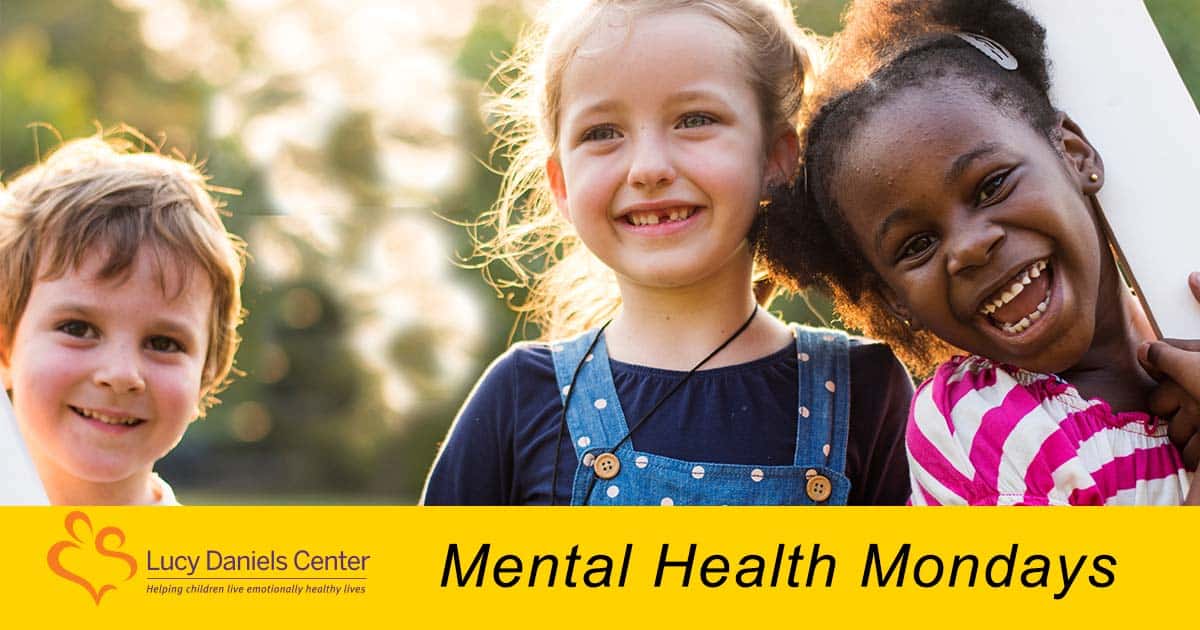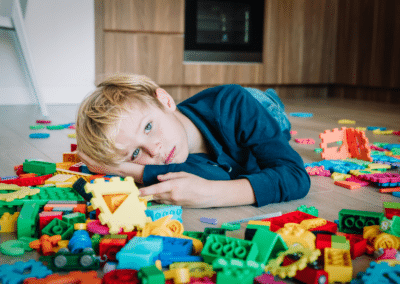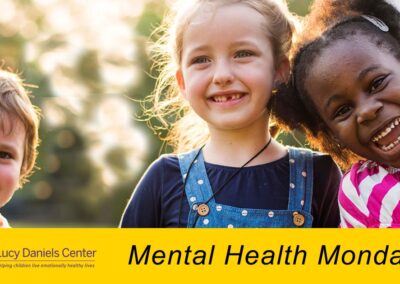Mental Health Mondays
Helping Children Develop the Means to Handle Challenges
Positive thinking: simply put, it’s the ability to face adversity with a hoped-filled frame of mind, to “look on the bright side” or see the “silver lining” despite challenges or feelings of disappointment or frustration. Many adults have developed effective ways to cope with some of the trials and tribulations that are a natural part of life, making the old adage to think positively a simple reminder to keep calm and not become overwhelmed. If only it were so simple when it comes to helping children develop their own ways to cope with the more challenging moments in life. What can parents do to help their children grow into people who can confront life’s frustrations and limitations without becoming overwhelmed?
The ability to maintain a positive outlook comes easier for some than it does for others. Is the ability to look on the bright side innate or inherent, or is there something in one’s upbringing that fosters a positive way of looking at things? The answer likely lies somewhere in between, but there are things that all parents can do to help their children with learning how to tackle challenges with strength and confidence.
Let’s consider some of the aspects of development that play a role in a child’s emerging ability to approach tasks in a positive way with a sense of confidence that they can manage their feelings and handle challenging experiences. Positive thinking stems in part from an ability to cope with a range of feelings that may surface in difficult moments without becoming overwhelmed. In infancy and toddlerhood, children depend on their parents for help with managing these emotions. Parents step in to help and, in some ways, seem to magically provide relief. Gradually, children develop their own effective ways to cope with emotional struggles and push through tasks, taking in the loving support and guidance of their parents along the way while finding their own inner strivings to be independent and resilient.
Help your child recognize feelings in every developmental phase.
Over time, children become more independent and parents gradually pull back on their help, replacing the act of stepping in with words of support, praise, and encouragement. Take, for example, the task of getting dressed. The transition from parents dressing a child to a child happily dressing himself doesn’t occur overnight. In the process, there are periods of growth and moving forward as well as the inevitable backslides and moments of upset and frustration. The manner in which a parent offers help can provide important lessons for the young child – lessons that are less about the specific task and more about how to understand feelings that have surfaced. At four or five years old, meaningful support involves identifying feelings for the child in the context of the task, saying, for instance, “My, what a lovely job you did today! You must be feeling strong and proud – you didn’t give up on that button!” or, on harder days, “Oh, those sleeves are so tricky! I can see that it is upsetting you, and that makes it feel even harder. I can help you if you like.”
Some children have a particular difficulty with feeling good or maintaining a positive outlook and the reasons for such difficulties vary from child to child. In cases in which coping with challenges seems to be more difficult than what is developmentally appropriate, seeking the help of a professional may be beneficial.
Good problem solving involves knowing one’s own limitations and when to ask for help.
Keeping in mind that “staying positive” means that one does not become overwhelmed when faced with challenges, an important lesson for children is to recognize the moments when it is okay – even admirable – to ask for help. There are always going to be limitations in what anyone can achieve on his own. By identifying feelings, recognizing strengths, and helping with struggles, parents can help their children know themselves in a way that leads them to understand and see both the upside and the downside to any given challenge. This type of self-knowledge can only be helpful to children as they learn how to assess situations and approach life’s challenges with a positive outlook.
Lucy Daniels School is an emotionally safe and supportive learning environment for children preschool-5th grade. Lucy Daniels School provides an alternative choice in our therapeutic school for children who struggle emotionally and academically in a mainstream school environment. At the Lucy Daniels School, each child’s education and therapeutic program is carefully tailored to his or her needs and strengths. Parents meet regularly with a parent guidance counselor. This collaborative approach helps children progress socially and academically to become successful and competent learners.



